Sandy Becker, MA
Sandy Becker received a BA in history from Pomona College. She then earned two MAs in Biology, and now has 25 years of experience in developmental biology research, working with mouse embryonic stem cells. Sandy began writing science articles about ten years ago to share her knowledge of science. She is currently studying for her third MA, in science journalism.

Science Facts Written by Sandy Becker, MA
When Did A Cat Become A Kitty?
It has long been thought that cats were first domesticated in Egypt, about 4000 years ago. Indeed, they were very highly thought of in ancient Egyptian society. It was illegal to kill or harm them, ... Continue reading

Who was Typhoid Mary?
Mary Mallon lived in New York about 100 years ago, and worked as a cook. It seemed that every family she worked for suffered an outbreak of typhoid fever! The Dept. of Public Health found that she ... Continue reading

Civets Lesson
Recently a Chinese television producer fell ill with Severe Acute Respiratory Syndrome, better known as SARS. He is the first victim in many months, although an epidemic last year claimed nearly 8000 ... Continue reading

How Does The Turtle Get Its Shell?
Many invertebrates, such as beetles and lobsters, have shells, but the turtle is the only living vertebrate with a shell (except for the armadillo or course). A turtle's top shell is called the ... Continue reading
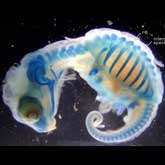
When This Lake 'Burps,' Better Watch Out!
Nearly twenty years ago, two lakes in Cameroon, a country in Africa, 'burped,' killing hundreds of people. What makes a lake burp? Lake Nyos and Lake Monoun are unusual lakes. They each formed in the ... Continue reading
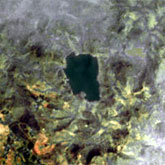
Regeneration 101
So who is the greatest regeneration superhero of all? Among vertebrates the lowly salamander is the champion 'comeback kid.' We humans are pitiful by comparison. We can often regrow the tip of a ... Continue reading

Smallpox, Chickenpox . . . Monkeypox?
This past summer a few people in the midwest came down with monkeypox, a viral disease related to smallpox but less infectious and a lot less deadly to humans. Oddly they all seem to have caught the ... Continue reading

GM: Not For General Motors Anymore
Genetically Modified plants have been given genes from other plants or even other species, that make them better able to resist diseases and pests, or more nutritious, or more productive. The list of ... Continue reading

Palm Trees and Prickly Pears
If you drive around Southern California you'll see a lot of palm trees and prickly pear cacti. If you drive around Southern Spain you will too! How did it happen that two places an ocean apart have ... Continue reading

Mother Nature's Own Brand of Bioterror
We've been hearing a lot about smallpox lately, as a possible bioterror attack. But Mother Nature has her own brand of bioterror. Smallpox has been with us for about ten thousand years, since the ... Continue reading

Bird Flu, Swine Flu, Human Flu
Influenza, unlike many viruses that make humans sick, can also affect birds and pigs. Generally strains of the influenza virus that causes disease in people are slightly different from those that ... Continue reading
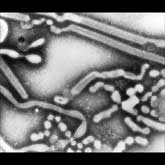
Malaria and Sickle Cell Anemia
Sickle cell anemia is a genetic disorder in which the red blood cells collapse into a 'sickle' shape and cannot carry oxygen very well. They also tend to get stuck in narrow blood vessels, causing ... Continue reading
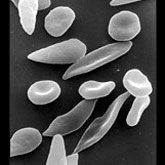
Why Can't We Really Clone Dinosaurs?
You might think, if you saw the movie Jurassic Park, or read the book, that a real live cloned dinosaur would be on the TV evening news any day now. Not very likely! In the fictional version, the ... Continue reading

What's The Difference Between A Sweet Potato And A Yam?
What's in a name? Although supermarkets offer both 'yams' and 'sweet potatoes,' in fact they are all sweet potatoes. True yams are rarely seen in the United States, and are actually quite different ... Continue reading
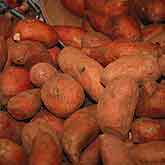
The World's Biggest Popsicle
Stored in a commercial freezer in France, along with quite a lot of frozen meat and cheese, is about 15 kilometers' worth of ice cores, taken from glaciers in Greenland and Antarctica. Each giant ... Continue reading

SARS: Mother Nature Strikes Again!
SARS, short for Severe Acute Respiratory Syndrome, is big news this spring. By the middle of April 2003, over 2000 people had been diagnosed with it in China and Hong Kong, another few hundred in the ... Continue reading

Why Do We Call It A 'Vaccination?'
Smallpox 'vaccinations' are in the news nowadays. What is smallpox and what is a vaccination? Smallpox is one of the oldest and most horrible diseases afflicting the human family. In the past, it ... Continue reading
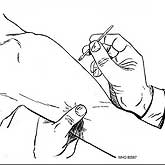
What's So Bad About The Badlands?
Hundreds of square miles of South Dakota are known as 'Badlands', a dry terrain of colorful rock formations and little vegetation. For pioneers crossing them in the 19th century, these lands were ... Continue reading

Resistance is NOT Futile!
Maybe if you are a Star Trek heroine up against the Borg, 'resistance is futile.' But if you are a germ that makes people sick, resistance - to antibiotics - is not futile at all. ... Continue reading
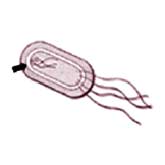
Why Aren't Mice More Like Us?
The sequence of the human genome was published two years ago, and recently, the sequence of the mouse genome was published. Amazingly, 99% of mouse genes have a counterpart in people. So why are they ... Continue reading
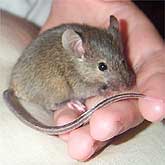
Marmaduke and the Taco Bell Chihuahua Are Cousins
You would never think Marmaduke, the enormous great dane of the newspaper cartoons, and the tiny Taco Bell chihuahua are close relatives. But the fact is, ALL dogs are pretty close relatives. ... Continue reading

